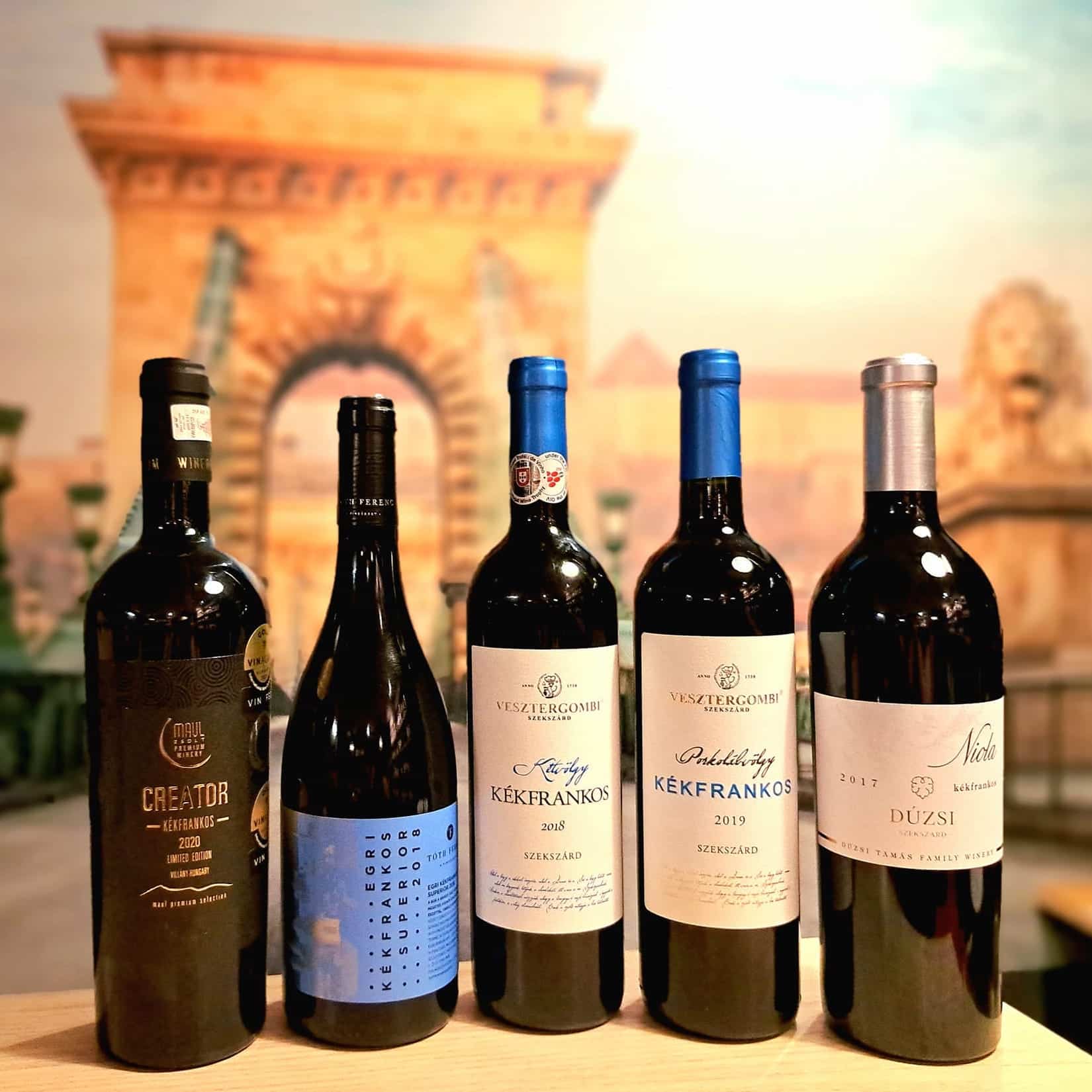
Kékfrankos tasting in Warsaw on 25 October
Kékfrankos is the most widely planted and most important black grape in Hungary – we tend to add “known as Blaufränkisch in Austria” less and less. By now Kékrankos has probably earned the right not to be translated! If you happen to be in Warsaw, do not miss this tasting of five Kékfrankos wines at Kociołek i Wino with Ewa Hangel owner and Łukasz Ostrowski sommelier.
Date and time: 25 October 2024, 19.00–21.00
Venue: Kociołek i Wino, ul. Kajki 68a, Warszawa, Poland
Price: The costs 75 PLN (17–18 EUR) per person and it includes snacks and a warm dish as well.
Contact: 517 599 595 or 506 144 629
Wines to be tasted:
– Maul Creator Kékfrankos 2020, Villány
– Tóth Ferenc Egri Kékfrankos Superior 2018, Eger
– Vesztergombi Kétvölgy Kékfrankos 2018, Szekszárd
– Vesztergombi Porkolábvölgy Kékfrankos 2019, Szekszárd
– Dúzsi Niola Kékfrankos 2017, Szekszárd
Niola – when the lady also wants her own selection
Dúzsi is a big family – as every member is involved in the wine world in one way or another. Ilona, a teacher, the wife of the founder Tamás Dúzsi, the mother of five children, has soon become interested in the miracle of winemaking – tough she is also responsible for the financial and sales matters of the estate as CEO –, so it was just a question of time to realease her own selection. Niola is the second of her selection wines, the first one is Niola Super Premium Merlot Rosé from the same vintage. Niola, the name is an anagram of Ilona.
“Dúzsi Niola Kékfrankos is an exquisite, silky red wine from the most prestigious vineyard, in Szekszárd, called Görögszó. Layers of cherries, plums, black currants, and spices reflect beautiful complexity” – as described by UK Hungarian Wine House.
Find Niola Kékfrankos 2017 on Dúzsi webshop (in Hungarian, bit google can help)
More about Dúzsi Family Winery (in English)
More about Kékfrankos grape below the photo

Kékfrankos
Regions: Hungary has over 8000 hectares of Kékfrankos, which makes it the most widely planted black grape of Hungary. In Austria Blaufränkisch is the second behind Zweigelt with 2640 hectares. Germany has a little bit more than 1700 hectares (and known as Lemberger or Limberger). Kékfrankos is grown in most of the Hungarian wine regions, it is probably the most famous in Sopron region (neighbouring Austria), and in the two Bikavér (Bull’s Blood) producing regions: Eger and Szekszárd. In Villány Kékfrankos is also cultivated with great care and believed to have potential. South Balaton, Kunság and Hajós–Baja also produces significant amount and quality.
Character: Dark-skinned, dark-fruited Austro-Hungarian variety. Vigorous, early budding and late ripening, thus needing a relatively warm climate. It is susceptible to downy and powdery mildews. Its wine is ritch in fruits and acidity. Kékfrankos can give elegant wines with long ageing potential.
Story: “From the Middle Ages onwards, the name Fränkisch was given to several high-quality varieties, indicating their superiority over the inferior Heunisch varieties. One of these high-quality varieties might have been Blaufränkisch, whose name did not appear until 1862 at a grape-variety exhibition in Wien (Vienna; Aeberhard 2005) and was officially adopted by the international ampelographic commission in Colmar, France, in 1875. It was later mentioned in Germany under the synonyms Lemberger (1877) and Limberger (end of the nineteenth century), both deriving from the Austrian locations from which the variety was exported to Germany: Lemberg in the Steiermark (Styria) and Limburg in Maissau (Niederösterreich/Lower Austria). In Hungary, the variety was first mentioned in 1890 under the name Kékfrankos, the literal translation of Blaufränkisch.”
Excerpt From: Robinson, Jancis; Harding, Julia; Vouillamoz, Jose. “Wine Grapes (9780062325518).” iBooks.
Sopron wine region has more than 1100 hectares of Kékfrankos, and this is the largest Kékfrankos plantation in the world. Sopron, this west Hungarian city is also known as the Capital of Kékfrankos, and it even has its own currency named after Kékfrankos!






